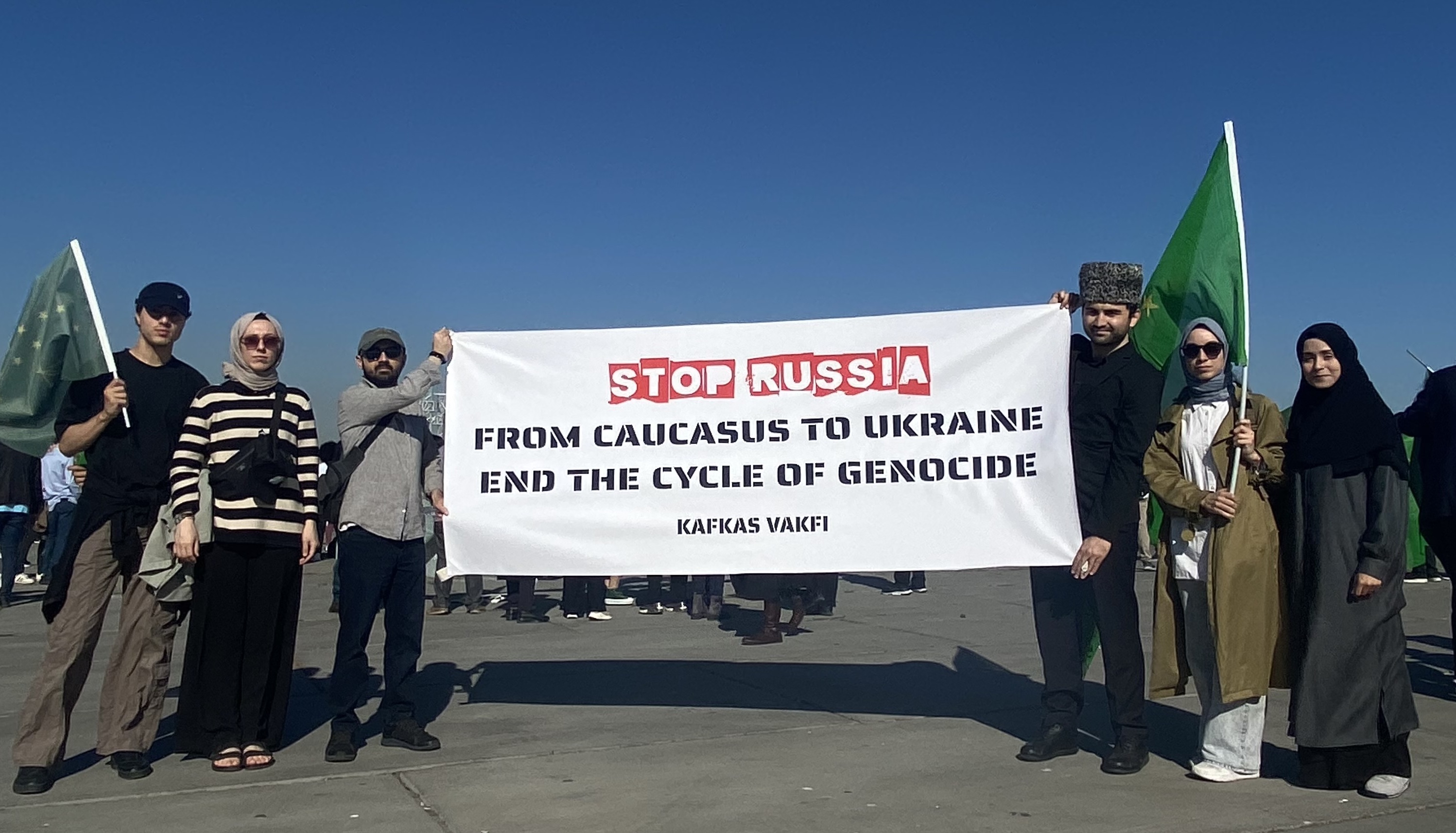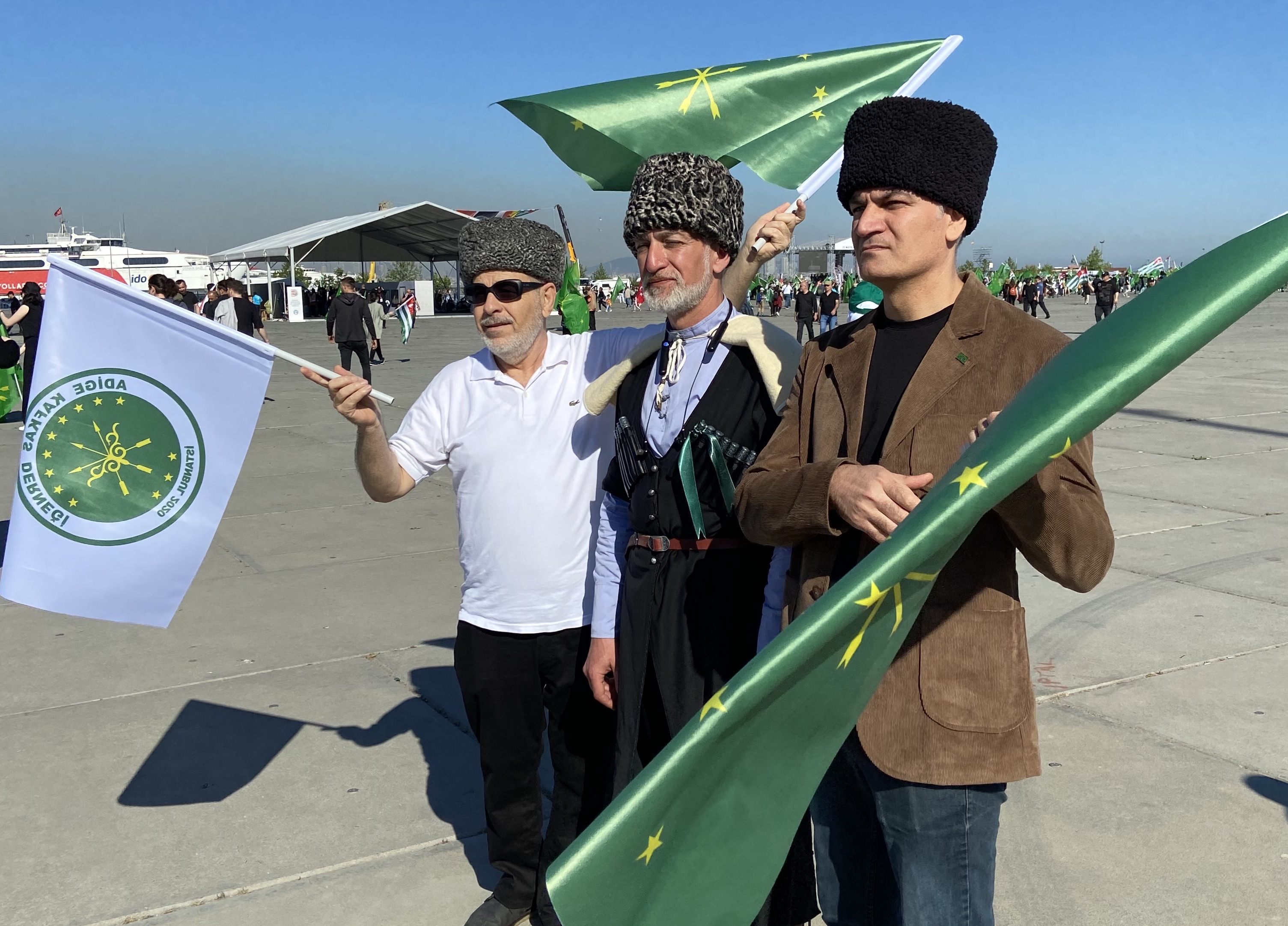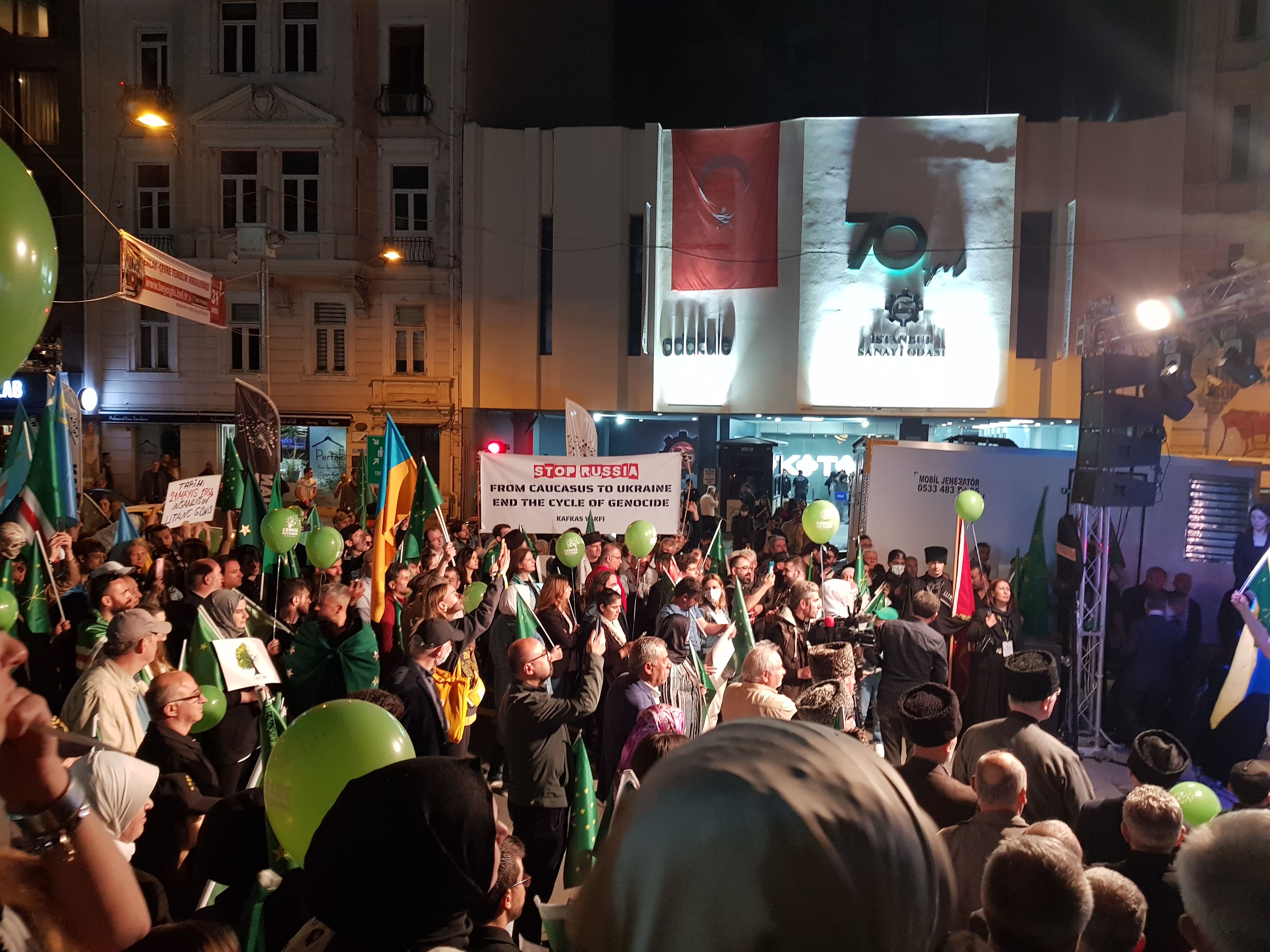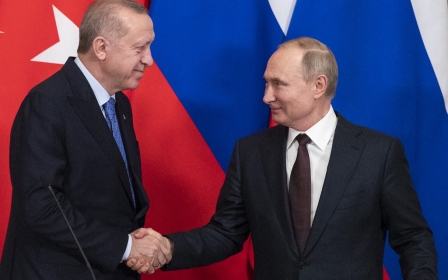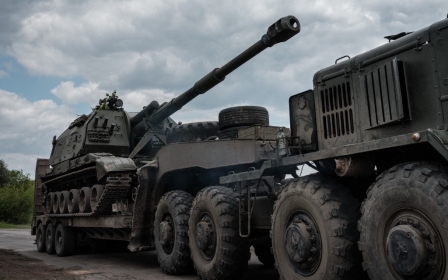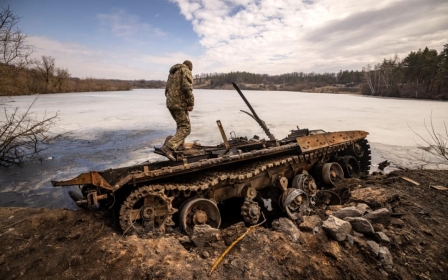Turkey: Circassians commemorate anniversary of mass killings by Tsarist Russia
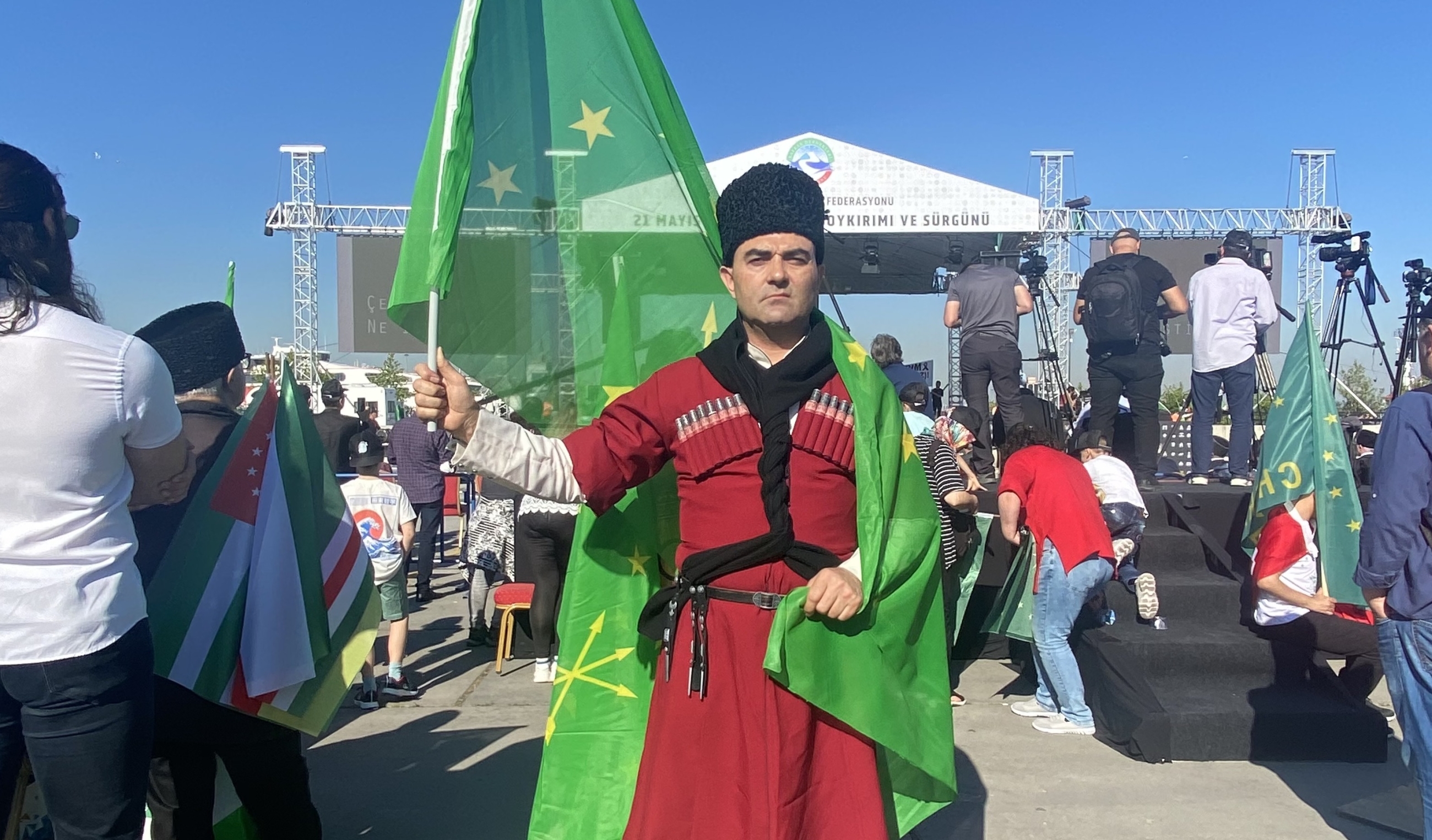
Thousands of people gathered in Istanbul’s Yenikapi Square on Saturday to commemorate the mass killings of Circassians by the Russian empire in 1864.
Hundreds of thousands of Circassians are believed to have been killed by the Russian empire in the three-centuries-long war with Circassian peoples in the 19th century.
Other ethnicities who have also suffered violence at the hands of the Russian empire were present in the square as well, including Chechens, Daghestanis, Karachays, Tartars, Ossetians and Abkhazians, who showed solidarity with Circassians.
New MEE newsletter: Jerusalem Dispatch
Sign up to get the latest insights and analysis on Israel-Palestine, alongside Turkey Unpacked and other MEE newsletters
On 21 May 1864, the Russian army marched on Circassia, burned villages and forcibly expelled the native population by sending them to the Ottoman Empire on ships.
Despite the controversy over numbers, it is believed that hundreds of thousands of Circassians were killed while two million were displaced. When the war ended, 90 percent of Circassians had left their homeland and failed to return later. The mass killings were later described as a genocide, known as Tsitsekun, an allegation which Russia has yet to accept.
Currently, Turkey accommodates an estimated one million Circassians, while hundreds of thousands of others live in Syria, Jordan and Israel, as the Ottoman Empire had settled them throughout its territories.
Since their arrival in Turkey, Circassians have managed to occupy senior positions in the military, bureaucracy and politics. They are essentially considered by different political movements in the country as part of Turkey’s multi-ethnic structure.
Saturday's ceremony witnessed the attendance of representatives of almost every existing political party in Turkey, a rare sight in the polarised political scene in the country.
Despite this positive attitude towards them, Circassians, who are predominantly Muslims, believe that their culture and language are vanishing.
“Unlike the Ottoman Empire, Turkey was founded as a nation-state, where other languages were not welcomed. For decades, the state has carried out campaigns to force every citizen to speak Turkish, which ended Circassian as of the 1970s,” states Mehdi Nuzhet Cetinbas, a founding member of the Caucasia Foundation. Based in Istanbul, the NGO promotes Circassian culture through organising language courses and seminars.
Hulusi Ustun, a researcher who widely writes about Circassian history, agreed with Cetinbas, saying that, “Circassians feel they are part of these lands, but Circassian language and culture are at the verge of extinction.”
The efforts to revive Circassian language and transmit it to younger generations intensified in the last decades, as several courses were launched to teach the language.
“We were granted permission to open classes at schools to teach Circassian to our children,” Cetinbas told MEE.
Ebubekir Kizik, head of the Istanbul-based Caucasia Foundation, argues that the new Caucasian generation has more ethnic consciousness compared with previous generations. Turkey’s respect for the presence of other identities, such as Kurdish, Alevi and Roman, motivated them to appear in the social and political scene with their ethnic identity.
However, Ustun believes that current rights are insufficient to keep Circassian culture alive, saying “we [Circassians] should demand positive discrimination from Turkey towards the language and culture”.
Contrary to previous generations, who strictly maintained inherited customs from their homelands, new generations do not speak Circassian, nor do they follow their own traditions and customs. Yet, they are bold enough to target Russia directly, raise their voices about what happened in the past, and want Moscow to be held accountable for what they consider a genocide.
Young generations agree that, in Ustun’s words, “Circassians can’t build a future on mourning their past.”
Some posters, hung around the square, read “We don’t want revenge but justice”, implying that Circassians want to negotiate certain rights with Russia.
Cetinbas summarised these demands: “First, we want Russia to allow us to visit our homeland without visa. Second, they [Russia] must allow us to buy property there.”
Circassians also want the international community to give an ear to their cause. “We were the first victims of Russian expansionism,” Cetinbas states, adding that “the same thing is happening in Ukraine now.”
While some were carrying posters that mostly referred to Russia’s expansionism from Caucasia to Ukraine, others chanted slogans, asking for the international community to stop Russia.
The sympathy for Ukraine was evident among protesters. Many posters had supportive messages for Ukraine and its people.
After the commemoration programme ended in Yenikapi Square, a few thousand people marched towards Taksim Square where the Russian consulate is located. However, the police blocked the crowd a few hundred metres away from the consulate building on the grounds that there would be "provocations".
Middle East Eye delivers independent and unrivalled coverage and analysis of the Middle East, North Africa and beyond. To learn more about republishing this content and the associated fees, please fill out this form. More about MEE can be found here.


